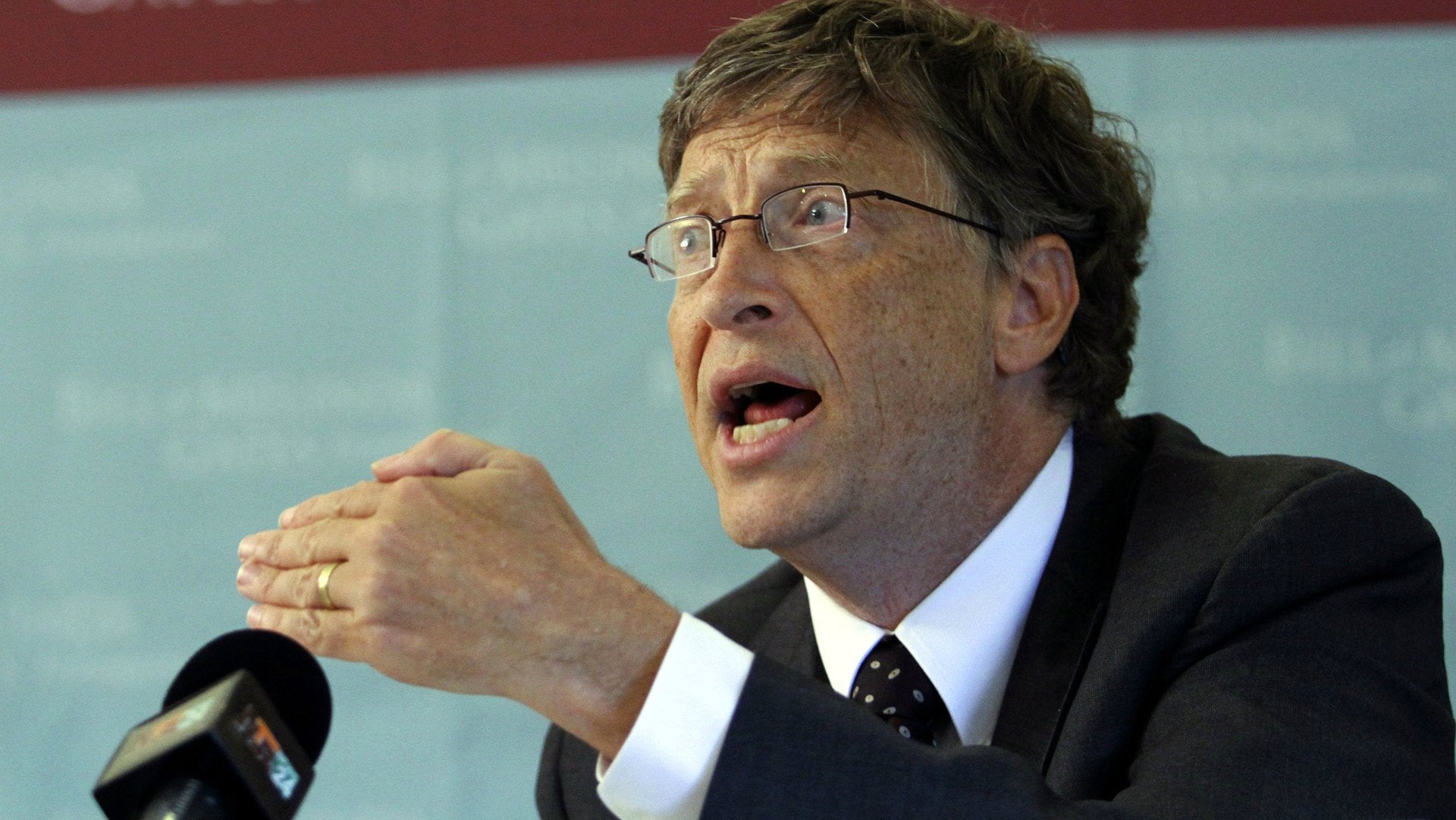Bill Gates is treating Nigeria like a startup he invested in—and that’s a good thing
Bill Gates did not become the world’s richest man by looking the other way when his money or investments are at stake. It doesn’t appear he will start doing so in Nigeria.


Bill Gates did not become the world’s richest man by looking the other way when his money or investments are at stake. It doesn’t appear he will start doing so in Nigeria.
Last week, while giving a speech during a visit to the country, Gates delivered some harsh truths to Nigeria’s leaders, including president Muhammadu Buhari. Gates called out the government’s failings and was broadly critical of Nigeria’s health system (he called it “broken” and “not adequately funded”), the struggling education sector and chronic malnutrition among children. The government’s priorities, Gates said, “don’t fully reflect people’s needs.”
Gate’s bluntness in front of Nigeria’s ruling class (the president, vice president, senate president and house speaker were all present) was jarring as most tend to address these issues more subtly, at least in public. But, during his presentation which came complete with charts, Gates came off as an investor reviewing a startup’s progress rather than a philanthropist with bottomless pockets of aid money. And he had a solid basis for that approach: so far, the Bill and Melinda Gates Foundation has committed over $1.6 billion to Nigeria, he said in his speech.
His criticisms and proffered solutions were backed up by data unlike usual government rhetoric that are often lacking in specifics. Gates pointedly broke down each issue with numbers and arrived at the same conclusion: Nigeria’s government must do better.
The good news though is Gates’ data-based approach of demanding more accountability and pushing the government to plan and deliver better on its targets has a better chance of yielding more dividends than delivering platitude-laden speeches. In his own words, “it may be easier to be polite, it’s more important to face facts so that you can make progress.”
The approach also ensures that the Gates Foundation gets more bang for their buck as they commit more money to Nigeria. Much of the foundation’s work has been around public health and most notably, the foundation has recorded major success in the fight against polio. Last year, Nigeria recorded no new polio cases in stark contrast to 2012 when Nigeria accounted for more than half of all polio cases globally.
In January, the Gates Foundation also took the unprecedented step to say it will pay off a $76 million loan Nigeria took from Japan for the fight against polio. Unlike, typical national debt forgiveness programs, this repayment was based on conditions which the government met including “achieving more than 80% vaccination coverage in at least one round each year in very high risk areas across 80% of the country’s local government areas.” It wasn’t simply about a financial arrangement but ensuring that Gates’ ambitions to completely eradicate the disease have better chance.